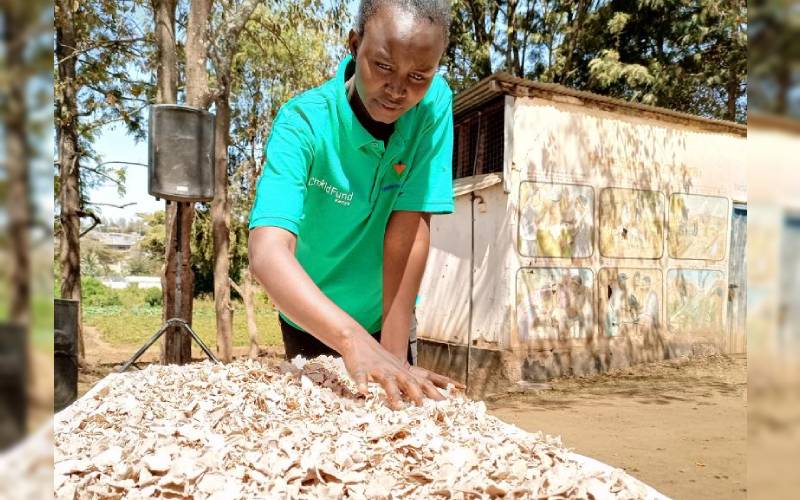×
The Standard e-Paper
Kenya’s Boldest Voice

A farmer dries sweet potato for value addition. [Mercy Kahenda]
Tired of earning small money and suffering post harvest losses, a team of sweet potato farmers in dry Samburu county have embraced value addition. The group are growing newly researched on orange fleshed potato variety because it is high yielding and fast maturing.